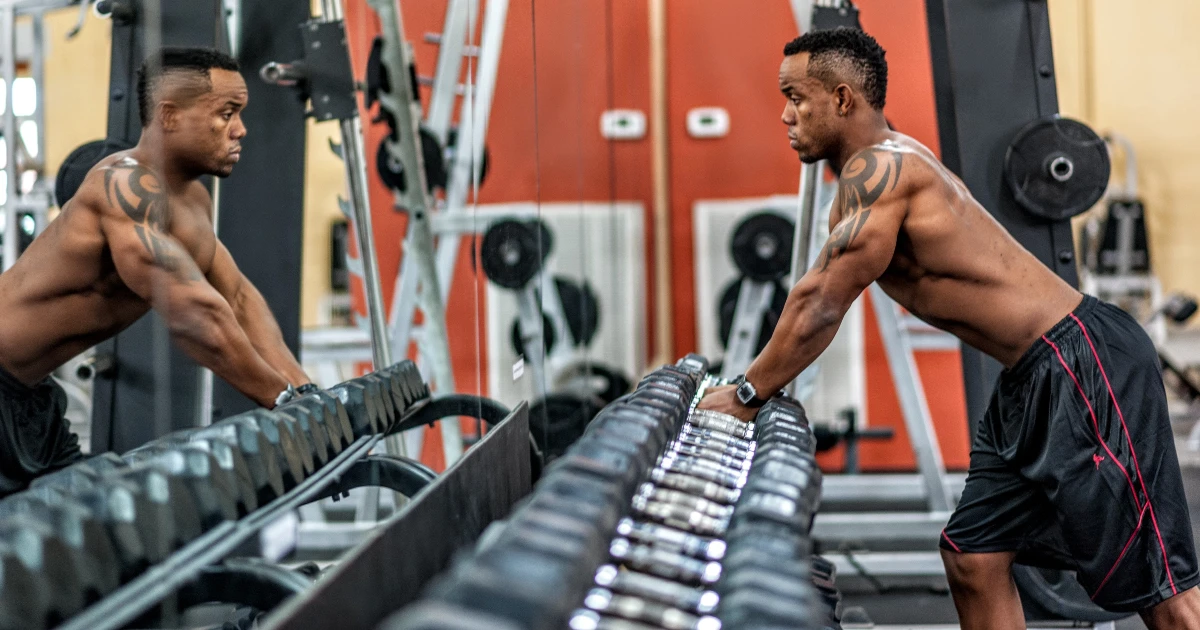How important is it to pay attention and listen to your body?
Charles Okpoko, a Certified Personal Trainer (NSCA) and online powerlifting coach, member of the USA Powerlifting national team with multiple national records and world championship titles under his belt, wrote an interesting article on barbend.com about what "listening to your body" really means to lifters. His advice focused on five principles:
- Noticing red flags;
- Take the time to warm up properly;
- Put your ego aside. "Secondly, put the pride aside. It’s not macho to lift through pain, especially if you don’t have to.", he says, and I couldn't agree more, especially when older dudes try to "compete" in the gym with younger dudes. The only competitor in the gym should be yourself.
- Don’t forget to stretch;
- Sleep and Fuel Yourself Properly.
Stew Smith, a former Navy SEAL and fitness author certified as a Strength and Conditioning Specialist (CSCS) with the National Strength and Conditioning Association, gives a nice piece of advice to lifters in his article published on military.com: "During lifting, a favorite workout for strength training is the 5x5. Five sets of five repetitions are done with about 75%-80% of your one-rep max (1RM). After a warm-up, you may feel ready to begin this workout, but notice that the fourth repetition is a little harder than it should be, and you decide to stop and avoid the fifth repetition. However, on the following sets, you hit all five reps solidly and even push for a sixth on one of the sets. Or you find that five reps are too easy, and you go 5-10 pounds heavier with the ensuing sets. That is a great example of listening to your body and making changes to improve your performance and prevent a potential injury.", he says.
"Listening to your body is a skill, and as such, it needs to be practiced and trained. Most advanced trainees can listen to their bodies to some degree, just from training for so long. But when you become conscious of the process behind listening, it works that much better. ", writes Logan Christopher, one of the best kettlebell jugglers in the U.S., in an article published in breakingmuscle.com.
So you see, the more professional athletes, trainers, and health specialists you ask, the more you learn that listening to your body is a must-do and must-have skill, not only while training but also in everyday life.
How to decide if your pain is "just soreness" or a serious injury
"In the days following a heavy workout, if you're experiencing tenderness and tightness but still have near normal strength and range of motion, it's likely just your everyday post-exercise soreness," says Dr. Rand on houstonmethodist.org (Houston Methodist comprises a leading academic medical center in the Texas Medical Center and six community hospitals serving the Greater Houston area). Muscle soreness is called delayed onset muscle soreness, or DOMS. During a workout, muscles become slightly damaged. But don't worry — typically, this damage isn't bad. It's part of the muscle-building process. This exercise-induced muscle damage is, however, what leads to muscle soreness, they say. "DOMS is ubiquitous and isn't worrisome," says Dr. Rand. "However, it's possible for muscle damage to go beyond what's normal during a very intense workout. If your muscle is very thick and swollen after a heavy workout, it could be a sign of a serious condition called rhabdomyolysis — and you'll want to consider seeing a doctor." I recommend reading the full article "Is Your Pain Just Muscle Soreness or a Serious Injury?" here.
The bottom line is that everyone should listen to their body and stop when the red flag is raised. Adapt your training if you feel any abnormal pain (not the typical muscle burn during exercise) with a different routine, take it step by step, increase the weight a little if you feel strong after a proper warm-up and the first set or decrease it if you feel weaker, skipp that exercise if your muscle or your joints hurt and seek professional medical advice if any abnormal signs come up. Pay attention to your appetite and thirst. Give your body only what it needs. If you might think you need a snack, ask yourself: "Am I hungry or just mindlessly snacking?". Maybe you are just thirsty or bored... Don't forget: listening to our body is a skill that must be trained. The more often you do it, the better you become at it!









